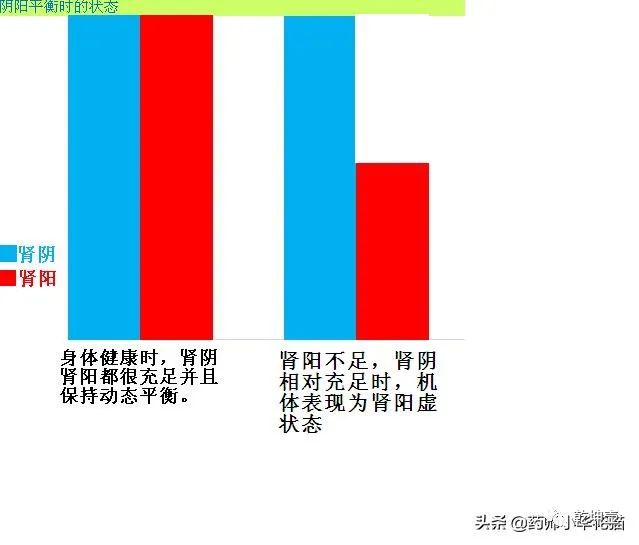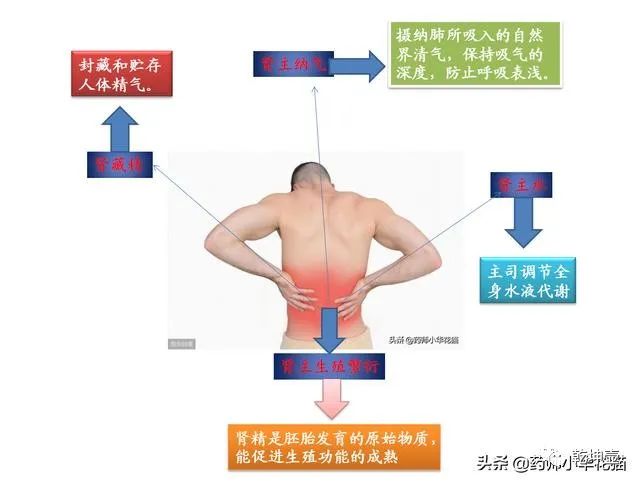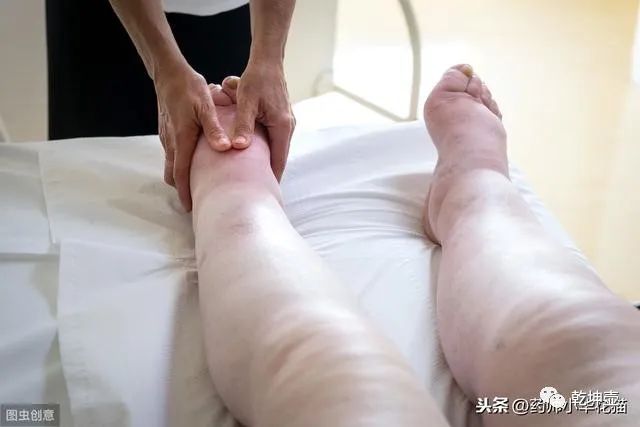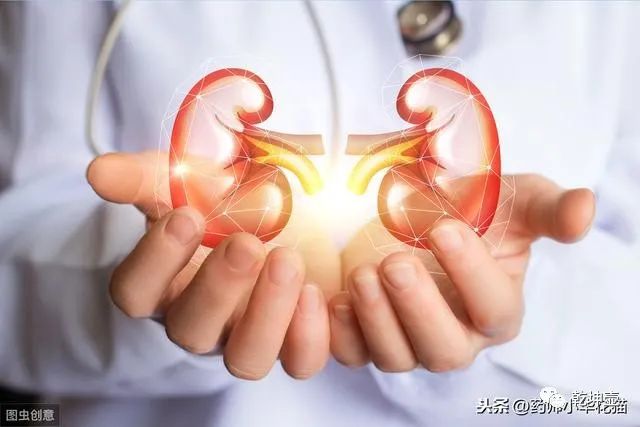Medications relate to personal health; please use them scientifically and reasonably under the guidance of a physician or pharmacist. Do not misuse medications.

Wishing everyone can achieve a state of health with balanced Yin and Yang.
I previously wrote an article on Kidney Yin Deficiency and Kidney Yang Deficiency, which can transform into both Yin and Yang Deficiencies, discussing symptoms and 15 commonly used Chinese patent medicines, briefly explaining the main symptoms and examples of commonly used medications for both Yin and Yang Deficiencies. Yesterday, I wrote an article on the two types of Kidney Yin Deficiency – Yin Deficiency with Excess Heat and Kidney Yin Deficiency. Can you distinguish between them? It discussed the symptoms and common treatments for these two types. Today, I have written this article on the classification of Yang Deficiency and examples of medications. Thus, I have covered all classifications of Kidney Deficiency and examples of commonly used treatments. From now on, I will no longer write articles related to Kidney Deficiency.
1. Concept of Kidney Yang Deficiency:
Kidney Yang – also known as Yuan Yang, True Yang, True Fire, and the Fire of the Mingmen, is the root of Yang Qi in the human body. It plays a role in promoting and warming all organs and tissues.
Kidney Yang Deficiency is a type of cold deficiency syndrome characterized by the failure of warming and Qi transformation due to weakened Kidney Yang. It is often caused by a constitution of Yang Deficiency, aging with Kidney depletion, prolonged illness harming the Kidneys, or excessive sexual activity.

Illustration of Kidney Yang Deficiency

Physiological functions of the Kidneys and their main impacts
Classification of Kidney Yang Deficiency
1. Kidney Qi Not Firm
This condition is caused by Kidney Qi deficiency leading to insufficient Kidney Yang, which in turn results in the failure of the body’s storage functions. It can directly lead to symptoms such as unstable essence retention, bladder incontinence, and instability of the Chong and Ren channels, manifesting as a series of symptoms characterized by disordered retention, primarily affecting essence, urine, menstruation, pregnancy, and bowel movements, as follows:
① Essence retention instability – nocturnal emissions, slippery essence, premature ejaculation;
② Bladder incontinence – urinary incontinence, post-urination dribbling, enuresis;
③ Instability of Chong and Ren channels – prolonged menstruation, uterine bleeding, miscarriage, slippery fetus, chronic diarrhea, fecal incontinence;
[Main Symptoms]: Lack of healthy complexion and normal skin luster, pale complexion without blood color; soreness and weakness in the lower back and knees, often feeling fatigued; increased frequency of urination, or feeling of incomplete urination, quickly feeling the urge to urinate again after urination, severe cases may even lead to urinary incontinence, unable to hold any urine, must rush to the toilet at the slightest urge, or frequent nighttime urination; men may experience slippery essence and premature ejaculation, women may have clear and thin vaginal discharge, some may show hearing loss.
[Causes]: Excessive labor, advanced age, or prolonged illness without treatment, leading to Kidney Qi deficiency, affecting the Kidney’s storage and retention functions.
[Treatment Principle]: Tonify the Kidneys and stabilize retention.

Kidney Qi Not Firm – fatigue, pale complexion, hearing loss
Examples of Chinese Patent Medicines
① Jin Suo Gu Jing Wan
[Main Ingredients]: Sha Yuan Zi (Fried), Qian Shi (Steamed), Lian Zi, Lian Xu, Long Gu (Calcined), Mu Li (Calcined).
[Function and Indications]: Stabilizes the Kidneys and astringes essence. Used for Kidney deficiency with instability, nocturnal emissions, fatigue, weakness in the limbs, low back pain, and tinnitus.
[Dosage]: Take on an empty stomach with light salt water or warm water, 0.2g/pill, 15 pills at a time, 3 times a day.
2. Kidney Not Receiving Qi
Kidney Yang deficiency leads to impaired Qi reception, which in turn affects the coordination between the Kidneys and Lungs in the intake and outflow of Qi, resulting in a series of symptoms. (“The Lung is the master of Qi, and the Kidney is the root of Qi. The Lung governs the outflow of Qi, and the Kidney governs the intake of Qi. When Yin and Yang interact, breathing is harmonious. If the intake and outflow are disordered, then wheezing occurs.”)
[Main Symptoms]: Shortness of breath, shallow breathing, noticeable breathlessness with slight activity, gasping for air; weak body, poor mental state, constant fatigue; severe cases of Kidney not receiving Qi may present as exacerbated wheezing, rapid and shallow breathing, gasping for air with an open mouth, and may even show critical symptoms such as cold sweats, cold limbs, and a pale complexion with a bluish tint.
[Causes]: Various factors leading to damage to Kidney Qi, such as prolonged illness harming Kidney Qi, resulting in Qi deficiency, which directly leads to the Kidney’s failure to receive and retain Qi, manifesting as respiratory discomfort.
[Treatment Principle]: Tonify the Kidneys and support Qi reception.

Kidney Not Receiving Qi – rapid and shallow breathing, breathlessness with slight activity.
Examples of Chinese Patent Medicines
① Gu Shen Ding Chuan Wan
[Main Ingredients]: Shu Di Huang, Fu Pian (Black Shun Pian), Mu Dan Pi, Niu Xi, Salty Bu Guo Zhi, Sha Ren, Che Qian Zi, Fu Ling, Salty Yi Zhi Ren, Rou Gui, Shan Yao, Ze Xie, Jin Ying Zi.
[Function and Indications]: Warms the Kidneys and supports Qi reception, strengthens the Spleen and transforms phlegm. Used for cough and wheezing due to Lung and Spleen Qi deficiency, and Kidney not receiving Qi; chronic bronchitis, emphysema, and bronchial asthma with the above symptoms.
[Dosage]: Oral, 1.5-2.0g at a time, 2-3 times a day, can be taken before the onset of symptoms, or to prevent recurrence of chronic wheezing, generally for 15 days as a course of treatment.
② Jin Ke Xi Jiao Nang
[Main Ingredients]: Ge Jie (Head and Feet Removed), Sheng Bai Ren, Huang Qi, Chuan Bei Mu, Wu Wei Zi, Sang Bai Pi (Honey Processed), Ku Xing Ren (Fried), Xuan Shen, Dang Gui, Bai Shao, Fu Ling, Gan Cao.
[Function and Indications]: Tonifies the Lung and supports Qi reception, stops cough and relieves wheezing, regulates the Lung and transforms phlegm. Suitable for chronic cough with white phlegm due to Lung and Spleen deficiency, wheezing that worsens with activity, fatigue, cold intolerance, white tongue coating, and deep pulse, or for chronic bronchitis during the remission phase, and mild chronic obstructive pulmonary emphysema with the above symptoms.
[Dosage]: Oral, 0.4g/capsule, 4-5 capsules at a time, 3 times a day.
3. Kidney Yang Insufficiency
Kidney Yang Deficiency refers to the deficiency of Yang Qi in the Kidneys, manifesting as soreness and weakness in the lower back and knees, cold intolerance, dizziness, mental fatigue, shortness of breath, impotence, and pale or dark complexion. Generally, Kidney Yang Insufficiency is mostly caused by aging, prolonged illness harming the Kidneys, excessive sexual activity, and poor congenital constitution. What is commonly referred to as Kidney Yang Deficiency usually refers to Kidney Yang Insufficiency.
[Main Symptoms]: Pale complexion, bright but bloodless or dark complexion with a yellowish tint; generally, those with Kidney Yang Insufficiency have poor complexion, and at first glance, one can see the signs of illness on their face; mental fatigue, soreness and cold pain in the lower back and knees, cold limbs with no strength; unformed stools, frequent diarrhea, sometimes passing undigested food, and some may experience early morning diarrhea, where they feel abdominal pain and urgency to go to the toilet at dawn, after which they feel fine; men may also experience impotence and infertility, while women may show signs of cold in the uterus and infertility.
[Causes]: Congenital weakness, prolonged illness without recovery, or excessive labor harming the Kidneys leading to the decline of Mingmen Fire.
[Treatment Principle]: Warm and tonify Kidney Yang.

Kidney Yang Insufficiency – pale complexion, mental fatigue, cold intolerance, weakness in the lower back and knees.
Examples of Chinese Patent Medicines
① Jin Gui Shen Qi Wan
[Main Ingredients]: Di Huang, Shan Yao, Jiu Yu Rou, Fu Ling, Mu Dan Pi, Ze Xie, Gui Zhi, Fu Zi (Roasted), Niu Xi (Head Removed), Salty Che Qian Zi.
[Function and Indications]: Warms and tonifies Kidney Yang, transforms Qi and promotes water metabolism. Used for Kidney deficiency with edema, soreness and weakness in the lower back and knees, and cold intolerance with cold limbs.
[Dosage]: Oral, water honey pills 4-5g at a time (20-25 pills), 2 times a day.
② Suo Yang Gu Jing Wan
[Main Ingredients]: Warms the Kidneys and stabilizes essence. Used for Kidney Yang insufficiency leading to soreness and weakness in the lower back and knees, dizziness, tinnitus, nocturnal emissions, and premature ejaculation.
[Function and Indications]: Suo Yang, Rou Zong Rong (Steamed), Zhi Ba Nan Tian, Bu Guo Zhi (Salt Fried), Tu Si Zi, Du Zhong (Charred), Ba Jiao Huo, Jiu Cai Zi, Qian Shi (Fried), Lian Zi, Lian Xu, Calcined Mu Li, Long Gu (Calcined), Lu Jiao Shuang, Shu Di Huang, Shan Zhu Yu (Processed), Mu Dan Pi, Shan Yao, Fu Ling, Ze Xie, Zhi Mu, Huang Bai, Niu Xi, Da Qing Yan.
[Dosage]: Oral, 9g/pill, 1 pill at a time, 2 times a day.
③ Cong Rong Bu Shen Wan
[Main Ingredients]: Rou Cong Rong, Shu Di Huang, Tu Si Zi, Wu Wei Zi (Wine Steamed).
[Function and Indications]: Tonifies the Kidneys and strengthens Yang. Used for Kidney deficiency with low back pain and impotence.
[Dosage]: Oral, 9g at a time, 2 times a day.
④ You Gui Wan
[Main Ingredients]: Shu Di Huang, Fu Zi (Pao Fu Pian), Rou Gui, Shan Yao, Shan Zhu Yu (Wine Roasted), Tu Si Zi, Lu Jiao Jiao, Goji Berries, Dang Gui, Du Zhong (Salt Fried).
[Function and Indications]: Warms and tonifies Kidney Yang, fills essence and stops leakage. Used for Kidney Yang insufficiency, decline of Mingmen Fire, cold in the lower back and knees, mental fatigue, cold intolerance, impotence, nocturnal emissions, loose stools, and frequent clear urination.
[Dosage]: Oral, 9g (1 bag) at a time, 3 times a day.
⑤ Yin Yang Huo
[Main Ingredients]: Yin Yang Huo Extract, Wu Wei Zi Extract.
[Function and Indications]: Tonifies the Kidneys and strengthens Yang, generates fluids. Used for impotence and premature ejaculation, soreness and weakness in the lower back and knees, fluid deficiency with spontaneous sweating, dizziness, etc.
[Dosage]: Dissolve in hot water, 5g at a time, 3 times a day.
⑥ Gui Ling Ji
[Main Ingredients]: Red Ginseng, Deer Antler, Seahorse, Goji Berries, Clove, Pangolin, Bird’s Nest, Niu Xi, Suo Yang, Shu Di Huang, Bu Guo Zhi, Tu Si Zi, Du Zhong, Shi Yan, Rou Cong Rong, Gan Cao, Tian Dong, Yin Yang Huo, Da Qing Yan, Sha Ren, etc.
[Function and Indications]: Strengthens the body, nourishes the brain, tonifies the Kidneys, and boosts Qi, enhances appetite. Used for Kidney deficiency with weak Yang, memory decline, nocturnal emissions, low back pain, fatigue, chronic cough, early morning diarrhea, and poor appetite.
[Dosage]: Oral, 0.6g (2 pills) at a time, once a day, taken 2 hours before breakfast with light salt water.
4. Kidney Deficiency with Water Overflow
This refers to a series of symptoms caused by Kidney Yang deficiency, which cannot warm and transform water and dampness. The Kidneys govern water and are interrelated with the bladder. Kidney Yang deficiency leads to insufficient Yang Qi, directly affecting the bladder’s Qi transformation function, resulting in reduced urine output, and water and dampness cannot be expelled in time, leading to accumulation and edema.
[Main Symptoms]: Generalized edema, most severe below the waist, reduced urine output, some may experience cough and wheezing, with exacerbated wheezing upon slight activity, thin and watery phlegm, pale tongue with white coating.
[Causes]: Prolonged illness leading to weakness and lack of nourishment, Kidney Yang deficiency cannot warm and transform fluids, leading to fluid retention and cough with phlegm, and severe edema manifesting on the skin.
[Treatment Principle]: Warm Yang and promote water metabolism.

Kidney Deficiency with Water Overflow – generalized edema, most severe in the lower limbs.
Examples of Chinese Patent Medicines
① Ji Sheng Shen Qi Wan
[Main Ingredients]: Che Qian Zi, Fu Ling, Fu Zi, Mu Dan Pi, Niu Xi, Rou Gui, Shan Yao, Shan Zhu Yu, Shu Di Huang, Ze Xie.
[Function and Indications]: Warms the Kidneys, transforms Qi, and promotes water metabolism. Used for Kidney deficiency with edema, soreness and heaviness in the lower back and knees, and cough.
[Dosage]: Oral, water honey pills 6g at a time, small honey pills 9g at a time, large honey pills 1 pill at a time, 2-3 times a day.
② Shen Yan Shu Pian
[Main Ingredients]: Cang Zhu, Fu Ling, Bai Mao Gen, Fang Ji, Sheng Bai Ren (Peel Removed), Huang Jing, Tu Si Zi, Goji Berries, Jin Yin Hua, Pu Gong Ying.
[Function and Indications]: Benefits the Kidneys and strengthens the Spleen, promotes water metabolism and reduces swelling. Used for edema caused by Spleen and Kidney Yang deficiency, with symptoms of swelling, low back pain, fatigue, cold intolerance, and frequent nighttime urination; chronic nephritis with the above symptoms.
[Dosage]: Oral, 6 tablets at a time, 3 times a day, reduce for children.
③ Yi Shen Hua Shi Granules
[Main Ingredients]: Ren Shen, Huang Qi, Bai Zhu, Fu Ling, Ze Xie, Qing Ban Xia, Qiang Huo, Du Huo, Fang Feng, Chai Hu, Huang Lian, Bai Shao, Chen Pi, Zhi Gan Cao, Sheng Jiang, Da Zao.
[Function and Indications]: Raises Yang, strengthens the Spleen, benefits the Kidneys, transforms dampness, and reduces swelling. Used for chronic glomerulonephritis (Kidney function: SCr < 2mg/dl) with symptoms of proteinuria, edema, fatigue, cold intolerance, and poor appetite.
[Dosage]: Dissolve in hot water, 1 bag at a time, 3 times a day. Treatment course is 2 months.
Through today’s introduction, I believe everyone has gained a comprehensive understanding of Kidney Deficiency. Wishing everyone health and happiness in the future!

Wishing everyone abundant Kidney Qi, harmonious Yin and Yang, and good health.

